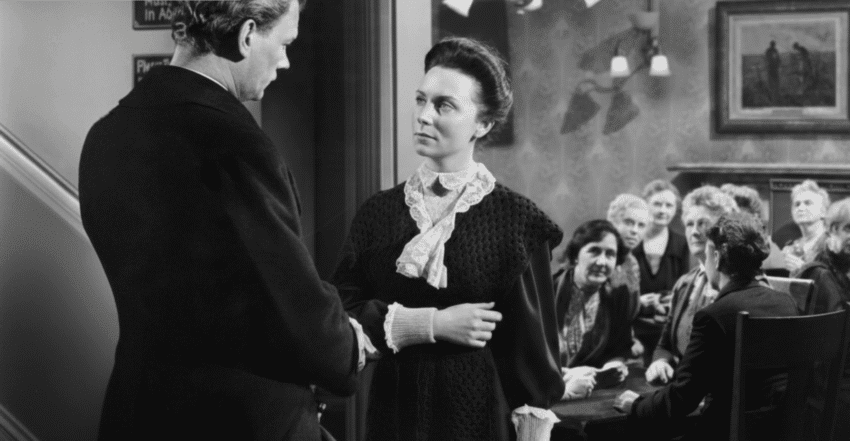
showrunner wants to use generative ai to Showrunner, a startup aiming to transform the entertainment industry through AI-generated content, has announced an ambitious project to restore lost footage from Orson Welles’ classic film, The Magnificent Ambersons.
showrunner wants to use generative ai to
Background on The Magnificent Ambersons
Released in 1942, The Magnificent Ambersons is an adaptation of Booth Tarkington’s 1918 novel, which explores the decline of a wealthy family amid the rise of industrialization. The film is notable not only for its narrative but also for its troubled production history. Orson Welles, a pioneering filmmaker, initially crafted a version of the film that ran 131 minutes. However, after losing control of the editing process, RKO Pictures, the studio behind the film, cut it down to a mere 88 minutes without Welles’ input. This drastic reduction resulted in the loss of significant portions of the film that Welles had envisioned.
The studio’s version of The Magnificent Ambersons went on to receive four Academy Award nominations and is widely regarded as one of Welles’ finest works. However, Welles himself disowned the film, famously stating, “They destroyed Ambersons and it destroyed me.” This sentiment underscores the challenges faced by artists when their creative visions are altered or compromised by external forces.
Showrunner’s Generative AI Model
Showrunner has developed a new generative AI model aimed at recreating the lost footage from this cinematic classic. The startup’s co-founder, Edward Saatchi, expressed optimism about the potential of generative AI to restore Welles’ original vision. In a statement to The Hollywood Reporter, Saatchi acknowledged that while current generative AI technology struggles to maintain narrative coherence over extended periods, advancements are being made. He believes that the technology is approaching a point where it can effectively prompt entire films.
Welles left behind detailed notes on how he wanted The Magnificent Ambersons to be edited, but RKO disregarded these instructions. Compounding the issue, the studio destroyed the negatives of the lost footage for storage reasons, leaving a significant gap in the film’s history. Showrunner aims to navigate these challenges by utilizing a combination of AI-generated approximations of what Welles might have filmed, along with sequences featuring live actors whose faces will be digitally manipulated to resemble the original cast.
Technical Approach
To achieve this ambitious restoration, Showrunner plans to employ its FILM-1 model, which will generate keyframes for the missing footage. This model will rely on set photos from the original production to create a spatial setting that aligns with Welles’ artistic vision. The use of AI in this context raises intriguing questions about the nature of authorship and the role of technology in preserving cinematic history.
Showrunner has also enlisted the expertise of Tom Clive, an AI visual effects artist known for his work in face-swapping technology. Clive previously contributed to projects such as Alien: Romulus and Here while at Metaphysic. His experience in manipulating digital likenesses will be crucial in ensuring that the recreated scenes maintain fidelity to Welles’ original cast.
Collaboration with Filmmaker Brian Rose
In addition to Clive, Showrunner is collaborating with filmmaker Brian Rose, who has his own history with The Magnificent Ambersons. Rose previously attempted a restoration of the film using hand-drawn animation based on the 1942 shooting script and archival photographs. His efforts highlight the challenges of recreating lost cinematic content, particularly when it comes to populating scenes with characters.
Speaking to NPR in 2023, Rose acknowledged that one of the most difficult aspects of his project was bringing characters to life in the recreated scenes. He also faced legal uncertainties, as Warner Bros. Discovery holds the intellectual property rights to The Magnificent Ambersons. Rose noted that his approach involved a certain degree of risk, stating, “The thought was to beg forgiveness later.” This sentiment reflects a broader trend in the industry where creators sometimes prioritize artistic expression over legal considerations.
Legal and Ethical Considerations
Showrunner’s approach to the restoration project raises important legal and ethical questions. The startup has previously made headlines for releasing unauthorized episodes of South Park generated by its AI models. This history suggests a willingness to push boundaries, often operating in a gray area of copyright law. However, in the case of The Magnificent Ambersons, Showrunner appears to be taking a more cautious approach by opting not to monetize the project.
Saatchi emphasized that the goal of the restoration is not financial gain but rather to allow the lost footage to exist in the world after decades of speculation about what Welles’ original vision might have been. He stated, “After 80 years of people asking, ‘might this have been the best film ever made in its original form,’ we want to see it realized.” This perspective highlights the potential for generative AI to serve as a tool for cultural preservation rather than mere profit.
Potential Impact on the Film Industry
The implications of Showrunner’s project extend beyond the restoration of a single film. If successful, this initiative could pave the way for similar endeavors in the future, potentially revolutionizing how lost or incomplete films are approached. The use of generative AI for restoration purposes could lead to a new era in film preservation, allowing filmmakers and historians to explore works that were previously thought to be lost forever.
Moreover, the project raises questions about the authenticity of AI-generated content. As technology continues to advance, the line between original works and AI-generated approximations may blur. This could lead to debates about the nature of creativity and the role of technology in artistic expression. While some may welcome the use of AI as a means of preserving cultural heritage, others may express concerns about the potential for manipulation and misrepresentation.
Stakeholder Reactions
The announcement of Showrunner’s project has elicited a variety of reactions from stakeholders in the film industry. Some filmmakers and critics have expressed enthusiasm for the potential of generative AI to restore lost cinematic works. They argue that such efforts can breathe new life into classic films and provide audiences with a deeper understanding of the artistic intentions behind them.
Conversely, there are those who remain skeptical of the use of AI in creative endeavors. Critics argue that relying on technology to recreate lost footage may undermine the artistic integrity of the original work. They contend that the nuances of human creativity cannot be fully replicated by algorithms, and that the essence of a film is often tied to the unique vision of its creator.
Future of AI in Film Restoration
As Showrunner embarks on this groundbreaking project, the future of AI in film restoration remains uncertain. While the potential for innovation is significant, the challenges and ethical dilemmas associated with such endeavors cannot be overlooked. The balance between preserving artistic integrity and embracing technological advancements will be a critical consideration for filmmakers, studios, and audiences alike.
Ultimately, Showrunner’s initiative to restore The Magnificent Ambersons using generative AI represents a fascinating intersection of technology and art. As the project unfolds, it will be essential to monitor its progress and the reactions it elicits from both the industry and the public. The outcome may not only reshape the legacy of Welles’ film but also influence the broader discourse on the role of AI in the creative process.
Source: Original report
Was this helpful?
Last Modified: September 8, 2025 at 6:30 pm
1 views















